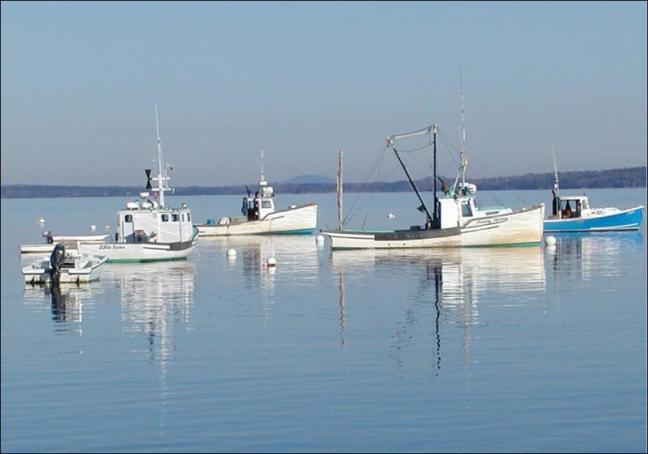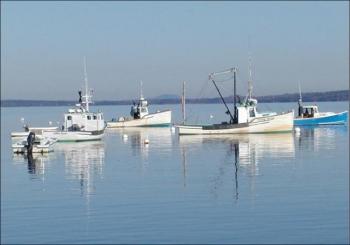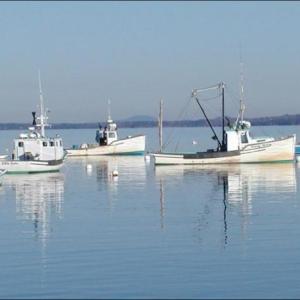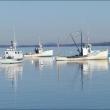Maine Lobstermen’s Association gears up for legal battle in federal court
Thousands of Maine’s family-owned lobstering businesses are at risk of extinction due to a recent federal court ruling citing a violation of the Endangered Species Act by the National Marine Fisheries Service, according to the nonprofit Maine Lobstermen’s Association/Maine Lobstermen’s Community Alliance.
“The world’s most sustainable fishery could be shut down,” the association said in a May 6 news release. “And that is something that the Maine Lobstermen’s Association cannot let happen.”
That court ruling occurred April 9, when U.S. District Court Judge James Boasberg ruled against the federal government in a lawsuit filed in 2018 by several environmental and humane society organizations, saying NOAA’s 2014 Biological Opinion violates the Endangered Species Act, and therefor is invalid.
This ruling said: “In 2014, Defendant National Marine Fisheries Service produced a Biological Opinion finding that, despite its potential to harm the species in unsustainable numbers, the American lobster fishery would not jeopardize the continued existence of the North Atlantic right whale. In so finding, however, the Service failed to include an “incidental take statement” as required under the Act. In response to this suit brought by four conservation groups, the Court now concludes that the agency’s reasons for this signal omission are unavailing. It will thus hold the 2014 Biological Opinion to be illegal under the Endangered Species Act and will order briefing as to further remedies.”
In response, Maine DMR Commissioner Patrick Kelleher said publicly April 10: “Governor Mills shares my deep disappointment about the Courts decision, and we are currently reviewing it to determine what this means for Maine's lobster industry and what next steps Maine can take. To be clear, the Judges Decision does not impact your ability to fish at this time - Maine's lobster fishery remains open.”
Following the April 9 decisions, the plaintiffs (Center for Biological Diversity, Conservation Law Foundation, Defenders of Wildlife, Center for Biological Diversity, Humane Society of the U.S.), defendants (Wilbur Ross, et al) and defendant intervenors (Maine Lobstermen’s Association and the Massachusetts Lobstermen’s Association) talked and submitted a joint status report regarding a briefing schedule.
It is:
May 15, 2020 — Plaintiffs’ opening remedy brief and supporting declarations, if any
May 29, 2020 — Deadline for discovery requests for Rule 33 interrogatories, Rule 34 documents, Rule 36 admissions on remedies
June 26, 2020 — Deadline for response to discovery requests
July 7, 2020 — Deadline for depositions
July 13, 2020 — Defendants’ remedy brief and supporting declarations, if any
July 16, 2020 — Defendant-Intervenors’ remedy briefs and supporting declarations, if any
July 24, 2020 — Amicus remedy brief August 14, 2020 — Plaintiffs’ reply brief
August 14, 2020 — Plaintiffs’ reply brief
According to the MLA: “The case proceeded in two phases. Phase 1 would determine if NMFS violated the law, and if necessary, Phase 2 would decide on a remedy so that the American lobster fishery can continue to operate in compliance with the ESA. The judge ruled on the first phase deciding the legal issue of whether NMFS had violated the law. On April 9, the judge ruled that NMFS had violated the Endangered Species Act (ESA), stating “failure to include an ITS [incidental take statement] in its 2014 BiOp [Biological Opinion] after finding that the American lobster fishery had the potential to harm the North Atlantic right whale at more than three times the sustainable rate is about as straightforward a violation of the ESA as they come.”
In response to the April 9 decision, the MLA has launched a campaign to raise $500,000 to save Maine’s lobster industry, announced Patrice McCarron, executive director of the Maine Lobstermen’s Association.
The MLA is an intervenor in the court case and is the only organization in Maine that has been granted standing to participate in the case.
“As an intervenor of right with full standing in the case, the MLA will correct significant factual errors in the eNGOs’ allegations that right whales are being seriously harmed by entanglement in U.S. lobster gear,” the MLA said. “Among other things, MLA will present the facts on the outsized role of Canada in right whale deaths over the last five years. Sadly, all ten right whale deaths in 2019 were attributed to Canada.”
Whale entanglement data collected by NMFS shows that no right whale deaths or serious injuries have ever been documented in Maine lobster gear, according to the MLA.
“This is in stark contrast to the death of 10 right whales in Canada last year,” the MLA said.
“Maine lobstermen have not broken any laws,” the MLA continued. “For nearly a quarter of a century they have followed every law and fishery management regulation, including major changes to their gear and fishing practices to save right whales. Nevertheless, the court's decision will directly impact Maine lobstermen and the communities that depend on them.”
The MLA has initiated a fundraising drive to help with its legal defense fund.
Contributions may be made on the MLA web site, via phone 207-967-4555, or by mailing checks made out to “MLA Legal Defense Fund”, mailed to MLA, 2 Storer St., Suite 203, Kennebunk, ME 04043.
Reach Editorial Director Lynda Clancy at lyndaclancy@penbaypilot.com; 207-706-6657
Event Date
Address
United States
























